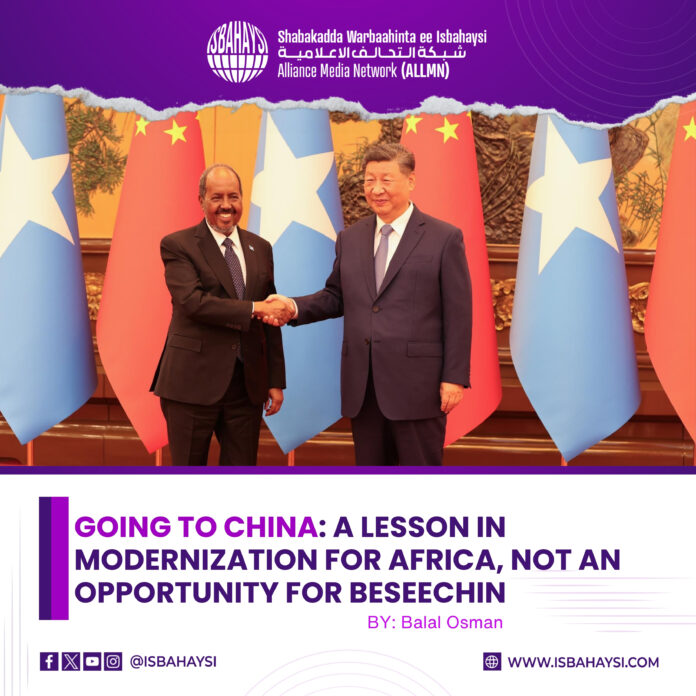The increasing demand for Africa’s vast natural resources has led to a modern-day scramble by both big powers and middle powers alike, echoing the colonial-era race for control of the continent’s wealth. Countries like United States, China, Russia and emerging powers such Turkiye, and India have become actively involved, vying for influence through strategic partnerships, infrastructure projects, and military cooperation. African nations, on the other hand, often find themselves “standby” waiting calls for summits from these powers, as these countries pursue access to the critical resources essential for global industries. Where some African government may benefit from the investments, this competition can lead to exploitative practices, unequal agreements and geopolitical tensions that undermines continent’s ability to set its own terms for development and resource management. This scramble reflects a broader contest for economic and political dominance with Africa caught at the canter of these global powers.
The latest (China-Africa) summit – FOCAC -exemplifies the ongoing scramble for Africa, with China deepening its influence across the continent. The summit reflects the broader competition among global powers, positioning China as a dominant player in the race for influence in Africa.
In their quest for modernization and development however, African countries can look China as a model for economic transformation. China’s rapid rise from a developing country to a global economic powerhouse should be seen as an inspiration by the African leaders in their own aspirations for development and economic growth. China’s approach – centred on state-driven industrialization, massive infrastructure projects and strategic partnership – offers a blueprint that should appeal to Africa. Over the past few decades, China has transformed itself from a largely agrarian society into the second-largest economy in the world after the United States of America; a technological leader and a global infrastructure powerhouse. Therefore, for African countries seeking to modernize their economies, improve infrastructure, and raise living standards, China offers valuable lessons. However, the essence of engagement with China should be about learning, understanding and adopting successful strategies, not simply beseeching for aid as China’s modernization story is a remarkable one that demonstrates how visionary leadership, strategic planning, accountability, discipline, and the focus on long-term goals can rapidly transform a country.
Beginning in the late 1970s, China embraced a hybrid model of governance and economics, blending state control with market-driven growth. Its ability to lift hundreds of millions of people out of poverty, modernize its cities, and establish a global manufacturing base has earned it recognition as a model for development and modernization. China recognized early on that modernizing its infrastructure was crucial to economic growth – a key factor that Africa is falling far behind. By building roads, railways, ports, and energy systems, China created a foundation for industrialization and commerce. China’s commitment to education and technological advancement has also been central to its rise. Investments in research, development, and high-quality higher education systemscreated a conduit of skilled workers and entrepreneurs, fuelling its tech industry and innovation. One of China’s greatest strengths though has been its ability to create and stick to a long-term vision. The Chinese government created and implemented development plans that spanned decades continuously, avoiding the temptation of short-term gains and frequent policy changes that derails development and modernization – a phenomenon that most of African countries have miserably failed to realize.
It should however be clear for African leaders, that beseeching China or other countries for aid or quick fixes does not foster sustainable development. This rather dishonourable routine reinforces the perception that African nations are dependent on external actors for their growth. Therefore, African leaders should approach China as well as other big powers or emerging powers as partners not as beseechers. This is not, however, to say that African nations should not seek financing or cooperation with China or other countries, but rather these interactions should be viewed as opportunities to gain knowledge and experience not handouts.
The true value of African engagement with the big powers or emerging powers lies in the potential for knowledge transfer, and learning good governance practices from them. African countries should focus on learning how to implement effective homegrown governance models, build resilient infrastructure, manage rapid urbanization, and create favourable conditions for private sector growth. This requires building internal capacity in terms of both human capital and institutions as well as fighting corruption, nepotism and most importantly resisting external negative influences.
For instance, China’s self-imposed commitment to jointly advancing modernization with other developing nations, particularly Africa, presents a significant opportunity for the continent’s development. By promoting a model of modernization that is open, inclusive and mutually beneficial, China pledges to foster win-win partnerships that address Africa’s infrastructure deficits, industrialization goals, and technological advancement. This self-imposed commitment holds promising future for Africa’s vision for sustainable development, offering both sides the potential for long-term economic progress based on mutual respect and equality. Additionally, China’s ability to develop its workforce through education, vocational training, and the encouragement of entrepreneurial spirit is something African nations can replicate. Most importantly, Africa can learn from how China streamlined governance processes to facilitate the implementation of its national development plans.
In conclusion, going to China should not be seen as an opportunity for beseeching but rather as a strategic move to learn from China’s modernization journey. African countries are rich with potential, and by studying China’s successes—and learning from its mistakes—they can chart their own paths toward sustainable development and modernization. The relationship between China and Africa should evolve from one of aid dependency to a partnership of equals, where African nations actively engage in knowledge exchange, build their capacities, and take charge of their own development futures. The lessons from China’s transformation are many, but it is up to African leaders to apply them wisely, with the focus on self-reliance, strategic planning, and long-term success.



